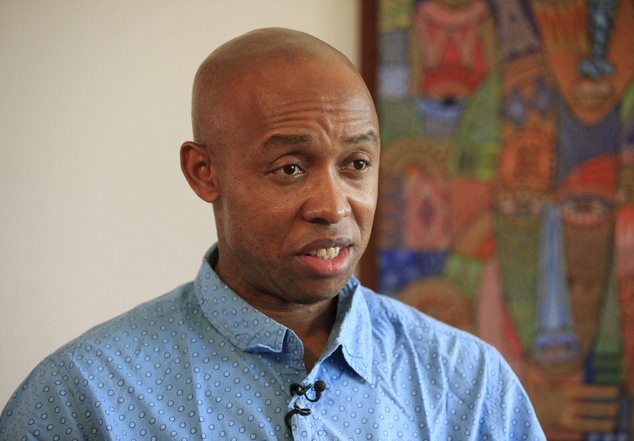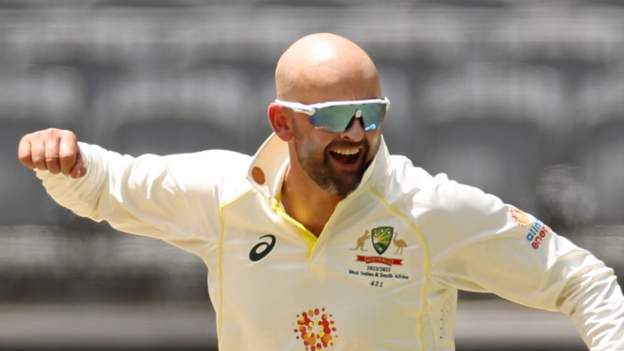As Nigeria Prepares for Presidential Campaigns, By Chidi Anselm Odinkalu
 Candidate Muhammadu Buhari's mantra during the campaign that eventually led him to the Nigerian presidency in 2015 was one word: "Change". For a fact, it was not original. 32 years before 2015, during the 1983 presidential election, Dr. Nnamdi Azikiwe's Nigeria Peoples Party (NPP) first unfurled this slogan in its failed attempt to make President Shagari a one-term president. p>
Candidate Muhammadu Buhari's mantra during the campaign that eventually led him to the Nigerian presidency in 2015 was one word: "Change". For a fact, it was not original. 32 years before 2015, during the 1983 presidential election, Dr. Nnamdi Azikiwe's Nigeria Peoples Party (NPP) first unfurled this slogan in its failed attempt to make President Shagari a one-term president. p>
The time seemed ripe for this message then. Under the watch of President Shagari's National Party of Nigeria (NPN), a unique blend of bad luck and official criminality has conspired to bring Nigeria to its knees. The desire for change seemed very real, but the NPN had no intention of leaving power and its opponents were too divided to offer a powerful threat. Thus, Shehu Shagari succeeded in increasing his share of the announced results from 36% in 1979 to 47.5% in 1983. Nnamdi Azikiwe, despite the resonance of his slogan, finally obtained only 13.99%.
Muhammadu Buhari, then a major-general in the Nigerian army, later decided to achieve with guns what the opposition could not with the ballot box: he overthrew President Shagari with a military state. After seizing power as a soldier of Shagari in 1983, Buhari returned to the future in 2015 to steal the NPP mantra. It is doubtful that Buhari knew in 2015 that his slogan was to genuflect before the altar of an "Igbo party", which was the number of people who saw the NPP.
To be fair, it was not just President Buhari's All Progressives Congress (APC) that cannibalized the remnants of the NPP in 2015. The NPP's party slogan was "Power to the People" which the People's Democratic Party (PDP) flew to its inception in 1998. So, as the 2015 elections approached, the two main parties drew inspiration from a single source.
The real challenge in 2015 was one that is all too familiar in African politics: an anti-climax of met political expectations. The ruling party had been in power for so long that it had no effective plan to transition into opposition, and the opposition party had become so comfortable in this role that it did not prepared to rule.
The electorate had to bear a considerable responsibility in this regard. People were so enamored with Buhari's unproven magic powers that they decided not to bother asking him to explain what kind of change he was talking about. It should have been obvious to anyone who cared that "change" is value-neutral. It implies movement without necessarily promising movement or progress. Its direction can be negative or positive. He has precisely the kind of terse quality that empties him of any clear commitment. With the promise of "change", candidate Buhari promised everything while committing to nothing.
Four years later, when he ran for re-election, President Buhari came back to precisely the same bag of trickery, promising "the next level" without stating "of what?"
In less than four weeks, on September 28, the electoral campaign for the 2023 presidential election will begin. If Nigerians are not to fall into the same mistake as in 2015, when the electorate seemed hypnotized into choosing without information, then in 2023 it will take a concerted effort to clarify positions...

 Candidate Muhammadu Buhari's mantra during the campaign that eventually led him to the Nigerian presidency in 2015 was one word: "Change". For a fact, it was not original. 32 years before 2015, during the 1983 presidential election, Dr. Nnamdi Azikiwe's Nigeria Peoples Party (NPP) first unfurled this slogan in its failed attempt to make President Shagari a one-term president. p>
Candidate Muhammadu Buhari's mantra during the campaign that eventually led him to the Nigerian presidency in 2015 was one word: "Change". For a fact, it was not original. 32 years before 2015, during the 1983 presidential election, Dr. Nnamdi Azikiwe's Nigeria Peoples Party (NPP) first unfurled this slogan in its failed attempt to make President Shagari a one-term president. p>
The time seemed ripe for this message then. Under the watch of President Shagari's National Party of Nigeria (NPN), a unique blend of bad luck and official criminality has conspired to bring Nigeria to its knees. The desire for change seemed very real, but the NPN had no intention of leaving power and its opponents were too divided to offer a powerful threat. Thus, Shehu Shagari succeeded in increasing his share of the announced results from 36% in 1979 to 47.5% in 1983. Nnamdi Azikiwe, despite the resonance of his slogan, finally obtained only 13.99%.
Muhammadu Buhari, then a major-general in the Nigerian army, later decided to achieve with guns what the opposition could not with the ballot box: he overthrew President Shagari with a military state. After seizing power as a soldier of Shagari in 1983, Buhari returned to the future in 2015 to steal the NPP mantra. It is doubtful that Buhari knew in 2015 that his slogan was to genuflect before the altar of an "Igbo party", which was the number of people who saw the NPP.
To be fair, it was not just President Buhari's All Progressives Congress (APC) that cannibalized the remnants of the NPP in 2015. The NPP's party slogan was "Power to the People" which the People's Democratic Party (PDP) flew to its inception in 1998. So, as the 2015 elections approached, the two main parties drew inspiration from a single source.
The real challenge in 2015 was one that is all too familiar in African politics: an anti-climax of met political expectations. The ruling party had been in power for so long that it had no effective plan to transition into opposition, and the opposition party had become so comfortable in this role that it did not prepared to rule.
The electorate had to bear a considerable responsibility in this regard. People were so enamored with Buhari's unproven magic powers that they decided not to bother asking him to explain what kind of change he was talking about. It should have been obvious to anyone who cared that "change" is value-neutral. It implies movement without necessarily promising movement or progress. Its direction can be negative or positive. He has precisely the kind of terse quality that empties him of any clear commitment. With the promise of "change", candidate Buhari promised everything while committing to nothing.
Four years later, when he ran for re-election, President Buhari came back to precisely the same bag of trickery, promising "the next level" without stating "of what?"
In less than four weeks, on September 28, the electoral campaign for the 2023 presidential election will begin. If Nigerians are not to fall into the same mistake as in 2015, when the electorate seemed hypnotized into choosing without information, then in 2023 it will take a concerted effort to clarify positions...
What's Your Reaction?






















